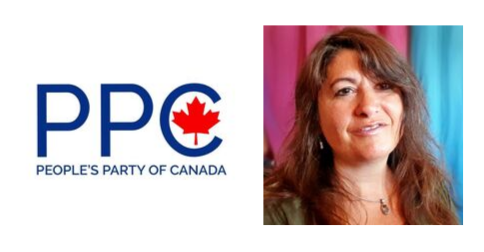Alyson Culbert, with the People’s Party of Canada, responds to the DSP 2019 election forum questions.
“I would like to thank the Downtown Service Providers for organizing this debate on these key issues for our community, and for allowing me the opportunity to participate. I am looking forward to presenting my views.”
1) If elected will your party support the current federally legislated poverty reduction strategy?
I am committed to reducing poverty, however I do not not support the current federally legislated strategy since it is clearly not working: these issues are getting worse, not better.
a) How will your party ensure that the new ‘Official Poverty Line’ for Canada, the Market Basket Measure, is regularly updated so that the measure reflects the current costs experienced by those living in poverty?
It is extremely important that government and society have accurate, current and reliable information to understand which measures are working and which are not. This information is vital to determine the appropriate funding of programs.
Our party will make sure that the Market Basket Measure is regularly updated by facts and figures from Statistics Canada and other reliable sources.
b) How will you ensure that the Advisory Council on Poverty reflects diversity and functions as an accountability mechanism that holds the federal government to its commitments?
It is vital to listen to those impacted by poverty and homelessness. I would ensure that the Advisory Council functions as an accountability mechanism by ensuring the stakeholders represent the expertise of those working in these fields and the needs of the people affected.
2) Given the high cost of living and of housing in Greater Victoria, will you advocate that your party implement a guaranteed basic income for all? What would you specifically do to tackle this issue?
It is integral that we look after those less fortunate. We must not have a series of ad hoc programs that sound good but do not actually address the issues. The current system is mired in bureaucracy and inefficiencies. The money is taking a convoluted path to the people. I would streamline the programs to ensure fairness.
3) Does your party support the recently adopted National Housing Strategy and the right to Housing? Please provide comments to support your position.
I believe that affordable housing is a priority for all people. However, I am concerned that the current strategy will not effectively address the issue. I have been a landlord for 25 years and speak from experience. We know that when there is sufficient housing available, prices are reasonable. Shortages will drive prices up, so what we have to focus on are the underlying issues causing these shortages.
4) Does your party commit to maintaining federal leadership and investment to address access to safe, affordable, and adequate housing?
We are committed to maintaining federal leadership. However, we do not support corporate welfare by giving tax payers’ money to real estate developers and landlords. I don’t think the current proposals will effectively address the issue. Cities are the key for driving development. As an example, I will provide leadership to increase the supply by encouraging the streamlining of zoning and approval processes.
5) Does your party commit to increasing federal investment specifically targeted to housing people experiencing homelessness?
Homelessness is a serious concern in our city. I think that many of the people truly experiencing homelessness have either mental health issues, drug addiction issues or both. I feel the federal government has a large role to play by legalizing and regulating access to opioids and by improving services for mental health.
6) More than 11,000 Canadians have died from fatal drug overdoses since the last federal election in 2015. Life expectancy rates in Canada have fallen for the first time in many years. Locally, 300 individuals in Greater Victoria have died. Both people who use substances and medical experts are calling for decriminalization of personal drug use and a regulated and safe drug supply. These policy options have been successful in other countries such as Portugal. If elected what will you do to advance these evidence based solutions?
I am a strong advocate for not only decriminalization but legalization and regulation of opioids. We have seen this to be an effective harm reduction method in some European countries. I myself, have personal experience and insight on this topic.
7) There are no publicly funded treatment options for addictions on Vancouver Island, only costly private ones, for the thousands of island residents who want help with their substance use. Victoria’s only outpatient option has a 10 week wait list just to start a group. If elected what will your government do to increase access to recovery services.
It is a travesty that when people want to reach out for help, none is available. Often times there is a very critical window, which we cannot afford to miss by not having these services.
Too often, early intervention could have broken the path to addiction. By not supporting corporate welfare, we will have the funds to direct to these critical programs.
